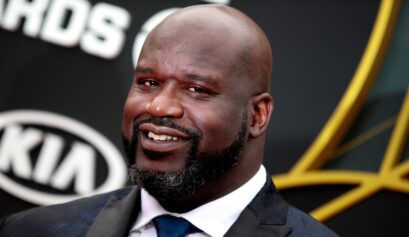Businessman Robert F. Smith is known for keeping a relatively low profile. His insatiable curiosity to solve problems has amassed him a fortune in the world of wealth management.
Who is Robert Smith?
Even as a child, the billionaire tech investor and philanthropist lived a “quiet, nerdish” life. Known as someone who loved to solve problems, Smith was an accomplished engineer before shifting to investment banking, where he would eventually start laying the groundwork to build his private equity empire, Vista Equity Partners.
Realizing that the business of private equity is about who you know, not to mention acquiring capital, Smith set out on a networking mission — something the shy Smith had to get used to.
“I realized that I was going to be limited by the amount of capital [I could get invested] if people didn’t know who I was,” Smith said.
Even though Smith obtained billionaire through his career, he has remained under the public radar. Many people had not known his name until he made headlines by offering to pay off student loans for the graduating class at Morehouse College, an HBCU, in 2019 during a commencement speech he delivered.
As of July 2021, Smith’s net worth of $6 billion makes him the wealthiest Black person in America, with Oprah Winfrey following as the second on the Black billionaire’s list, according to Forbes.
Using his platform to promote inclusion and diversity when it comes to wealth creation, Smith has generously dished out sanguine advice over the years.
Here are five business lessons Smith has learned.
1. Master Your Craft
Smith has said he learned how important it is to master a skill set, no matter what career one pursues.
“The most important thing you can do as a young person in [the Black] community is to become an expert,” Smith said in a talk at Columbia Business School with the Columbia Black Business Students Association. “There’s no substitute for becoming an expert and being the best at your craft. And that’s what I focused on.”
2. Pursue Opportunity
While the graduates of Morehouse received the gift of having their debt wiped out, Smith also gifted them with a lesson on opportunity.
He recounted his experience as a child during a contentious time of desegregating school busing. He told Morehouse graduates of how his taking Bus No. 13 on the way from his mostly middle-class, African-American community to attend school at the then-mostly white East High School “changed the trajectory.” He said this grabted him an opportunity to go to a better-resourced school and to receive a better quality education.
Last year, Smith opened the doors to STEAM Academy, a high school founded by an investor that is based in his hometown of Denver, Colorado. The school foundation is cemented in the principles of Historically Black Colleges and Universities. A central component of the school’s model, in addition to the curricular foci, is serving as a community center, according to the school’s website.
3. Pay It Forward, Literally
“More than the money we make, the awards, or recognition, or titles we earn, each of us will be measured by how much we contribute to the success of the people around us,” Smith told the Morehouse graduates.
Outside of the corner office, Smith is known for being community-centric by spreading not only knowledge but his wealth. Among his various philanthropic gestures, he donated $20 million to the National Museum for African American History and Culture in 2016.
Smith has exemplified the giving of his bounty by signing the Giving Pledge, in which participants commit to giving the majority of their wealth during their lifetime.
4. Leaders Develop Others To Lead
The intentionality of building others up is important to Smith. During a conference in Phoenix, Arizona, the private equity maven said that the best thing a company can do is to invest in the employees by bringing underrepresented people into their workforce with a focus on development.
5. Run Your Own Race
Betting on yourself is the best thing you can do when you’re left with no one in your corner, he finds.
“I started Vista because I knew no private equity firm would hire me. I saw what they were looking for, so I created my own firm,” said Smith. “With the process of discovery, you fail a lot. You learn a great deal from those failures, so the next time you can, avoid those mistakes.”




